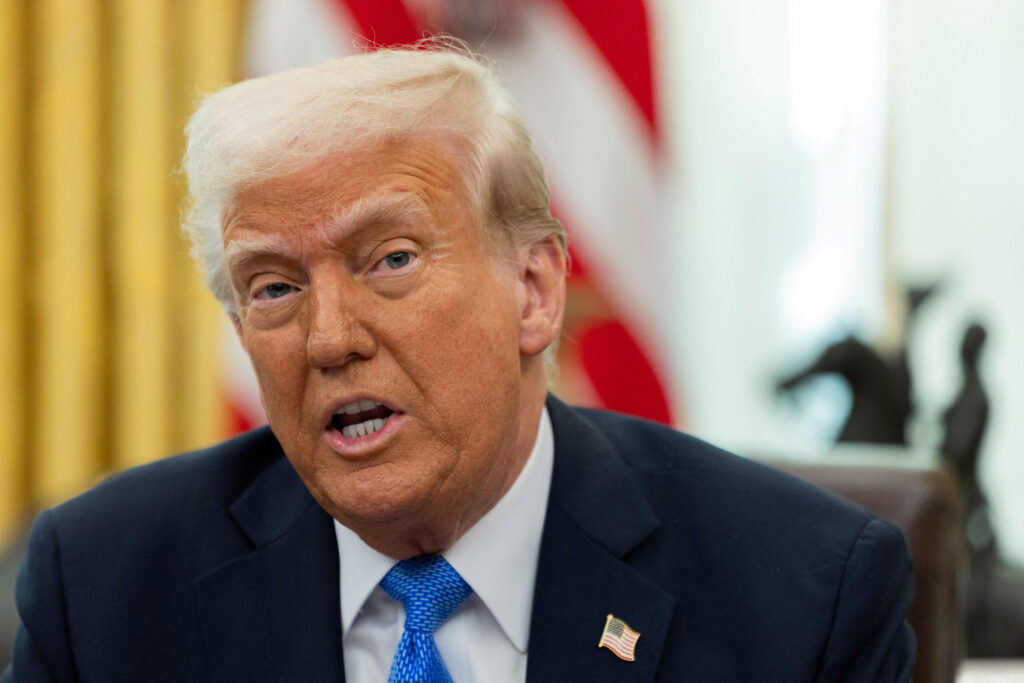

The US Supreme Court said Thursday it will hear arguments in May over Donald Trump’s bid to broadly enforce his executive order to restrict automatic birthright citizenship, a key pillar of the Republican president’s hardline approach toward immigration.
The justices, in an unsigned order, did not immediately act on a request by Trump’s administration to narrow the scope of three nationwide injunctions issued by federal judges in Washington state, Massachusetts and Maryland that halted his January 20 order while the matter is litigated.
Instead, the court deferred any decision on that request until it hears arguments in the case set for May 15.
Trump’s order, signed on his first day back in office, directed federal agencies to refuse to recognise the citizenship of children born in the United States who do not have at least one parent who is an American citizen or a lawful permanent resident.
In a series of lawsuits, plaintiffs, including 22 Democratic state attorneys general, immigrant rights advocates and some expectant mothers, argued that Trump’s order violates a right enshrined in the US Constitution’s 14th Amendment, which was ratified in 1868, that provides that anyone born in the United States is a citizen.
The 14th Amendment’s citizenship clause states that all “persons born or naturalised in the United States, and subject to the jurisdiction thereof, are citizens of the United States and of the state wherein they reside.”
Trump praised the Supreme Court’s decision to review the dispute, telling reporters this is “an easy case to win.” A Justice Department spokesperson said it looked forward to presenting its case before the justices.
New Jersey Attorney General Matthew Platkin, who is helping to lead one of the lawsuits challenging Trump’s order, said in a statement, “Birthright citizenship was enshrined in the Constitution in the wake of the Civil War, is backed by a long line of Supreme Court precedent and ensures that something as fundamental as American citizenship cannot be turned on or off at the whims of a single man.”
The Supreme Court has a 6-3 conservative majority.
The administration contends that the 14th Amendment, long understood to confer citizenship to virtually anyone born in the United States, does not extend to immigrants who are in the country illegally or even to immigrants whose presence is lawful but temporary, such as university students or those on work visas.
The administration’s request to the Supreme Court, however, did not seek the court’s review of the constitutionality of Trump’s order. Instead, it used the legal battle to press the Supreme Court to tackle nationwide, or “universal,” injunctions that federal judges have issued impeding aspects of Trump’s various executive orders to reshape national policy, including birthright citizenship. Universal injunctions can prevent the government from enforcing a policy against anyone, instead of just the individual plaintiffs who sued to challenge the policy.
An 1898 U.S. Supreme Court ruling in a case called United States v. Wong Kim Ark has long been interpreted as guaranteeing that children born in the United States to non-citizen parents are entitled to American citizenship. Trump’s Justice Department has argued that the court’s ruling in that case was narrower, applying to children whose parents had a “permanent domicile and residence in the United States.”
Trump’s birthright citizenship order “reflects the original meaning, historical understanding and proper scope of the Citizenship Clause,” wrote US Solicitor General John Sauer, representing the administration. Sauer said that universal birthright citizenship encourages illegal immigration and “birth tourism”, in which people travel to the United States to give birth to secure citizenship for their children.






Comments